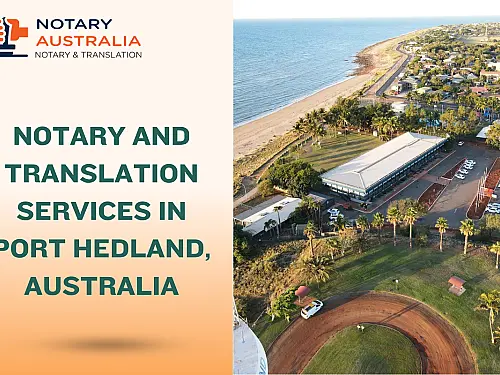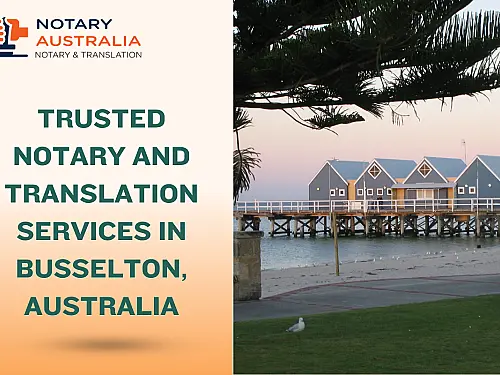



Passport Notarization in Australia: Your 2025 Legal Guide

Table of Contents
Need to notarize your passport in Australia for visa, immigration, or international travel purposes? You’re not alone. Every day, Australians and foreign nationals alike are asked to provide a certified or notarized copy of their passport for official use — and getting it done correctly can make all the difference.
In this comprehensive guide, we’ll walk you through everything you need to know about passport notarization in Australia — including how it works, where to do it, the costs, legal requirements, and whether you can get it done online or via mobile notary.
What Is Passport Notarization and Why Do You Need It?
Passport notarization is the process where a licensed notary public certifies that your passport copy is a true and accurate replica of the original. This notarized copy can then be used for:
- Visa and immigration applications
- Embassy and consular submissions
- Job applications overseas
- University admissions or scholarships
- Travel-related affidavits
- Legal transactions abroad
A notarized passport confirms your identity and protects against fraud — especially when dealing with foreign authorities, financial institutions, or government agencies.
Types of Passport Documents That Can Be Notarized
You can notarize a wide range of passport-related documents:
| Document Type | Use Case Example |
|---|---|
| Biometric Passport Copy | For visa, embassy, or university use |
| Expired Passport Copy | For legacy documentation or embassy record |
| Foreign Passport (Non-Australian) | For overseas nationals residing in Australia |
| Child Passport Copy | For child visa or guardianship applications |
| Affidavit Referencing Passport | Travel, dual citizenship, or lost passport |
| Passport Translations | Required for non-English passports |
| Multilingual Passports | When certified bilingual copies are needed |
If your passport is in a foreign language, make sure to get a NAATI-certified translation before the notarization process.
How to Notarize Your Passport in Australia (Step-by-Step)
Step 1: Choose the Type of Notary Service
You have three options:
- In-person notary: Visit a physical office near you
- Online notary: Use remote video notarization
- Mobile notary: A notary comes to your location
Step 2: Prepare Required Documents
- Your original passport
- A clear photocopy of the passport (usually photo page only)
- Valid ID (if separate from passport)
- Any supporting documents (e.g. embassy letter)
Step 3: Meet with the Notary
The notary will:
- Inspect your passport
- Verify your identity
- Confirm the photocopy matches the original
- Stamp and sign the copy with a notary seal
Step 4: Receive Your Notarized Copy
You will receive a notarized passport copy either physically or digitally, depending on the service type.
Online and Mobile Notary Options for Passport Copies
Can’t visit a notary in person? No worries.
Online Notarization
With virtual passport notarization, you can meet a licensed notary via secure video call and send your documents digitally. Perfect for remote areas, urgent needs, or COVID-safe transactions.
Common keywords:
- online passport notarization
- remote passport notary
- notarize passport online Australia
Mobile Notary Service
A mobile notary can visit your home, office, hotel, hospital, or even detention centre.
Popular in:
- Sydney
- Melbourne
- Brisbane
- Perth
- Adelaide
- Canberra
- Gold Coast
Costs and Timelines for Passport Notarization
The cost of passport notarization varies based on the service type and location.
| Service Type | Typical Price Range |
|---|---|
| Standard in-office | $70–$120 |
| Online Notarization | $90–$140 |
| Mobile Notary Service | $150–$250 (incl. travel) |
| Express / Same-Day Service | Add $50–$100 extra |
Tip: Always ask for a fixed quote to avoid hidden fees.
Most notarizations are completed same-day, especially for standard requests.
Use Cases: Visa, Immigration, Employment, University
Passport notarization is commonly required in the following situations:
- Visa Applications: Most embassies demand notarized ID
- Immigration Paperwork: Supporting documents for permanent residency or asylum
- Overseas Job Offers: Especially in government, finance, and law sectors
- Academic Admissions: Universities and scholarship bodies abroad
- Banking/Finance: Opening accounts with international institutions
- Family Law Cases: Custody, guardianship, or international parental consent
Apostille, DFAT, and Embassy Legalisation Requirements
Notarization alone may not be enough for international use. Some countries require further authentication:
For Hague Convention Countries:
- Get an apostille certificate from DFAT (Department of Foreign Affairs and Trade)
For Non-Hague Countries:
- Submit the notarized passport for embassy or consular legalisation
Popular destinations requiring this step include:
- China
- UAE
- Qatar
- Vietnam
- Egypt
Notarizing Translated and Foreign Language Passports
If your passport is in a language other than English, you must:
- Get a NAATI-certified translation
- Have both the original and translation notarized
- Submit for apostille or embassy verification if needed
This is especially important for:
- Expats in Australia
- Visa renewals
- International education enrolments
Common Questions and Mistakes to Avoid
Q: Can I notarize a scanned passport copy?
A: No. You must present the original physical passport to the notary.
Q: Is a JP (Justice of Peace) stamp the same as a notary?
A: No. JPs cannot notarize for international or embassy use. Only a notary public is recognised globally.
Q: My passport is expired. Can I still notarize it?
A: Yes, if required for historical or identification purposes — but check embassy guidelines first.
Mistakes to Avoid:
- Using photocopies without the original
- Choosing JP over notary for embassy documents
- Forgetting to bring valid ID
- Not translating non-English passports before notarization
Booking a Notary Appointment: What You Need to Prepare
What to Bring:
- Original passport
- Photocopy (clear and unaltered)
- Secondary ID (if required)
- Any embassy letters or supporting documents
Where to Book:
- Notary offices in your city
- Online notary platforms
- Mobile notary providers
Appointments usually take 10–20 minutes
Same-day and 24-hour notary bookings are available in most metro cities and some regional areas.
Final Thoughts
Whether you’re applying for a visa, moving overseas, or simply need a certified ID, passport notarization in Australia is a fast, reliable, and legally recognised solution.
From in-person visits to online and mobile notary services, Australians have never had more options to get documents notarized — securely and affordably. Just make sure to follow the proper steps, bring the right documents, and use a licensed notary public.
Your passport is your most important identity document. Getting it notarized properly is one less thing to worry about when dealing with international authorities, academic institutions, or legal systems.

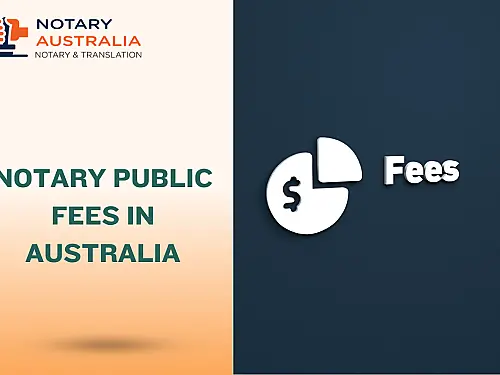

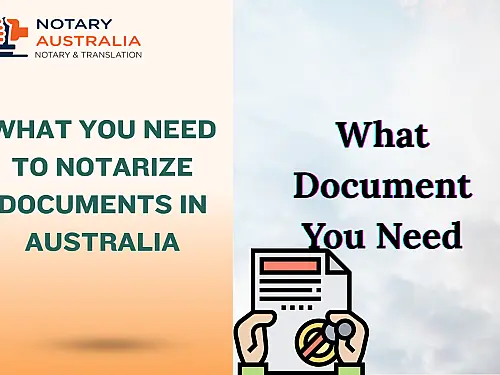
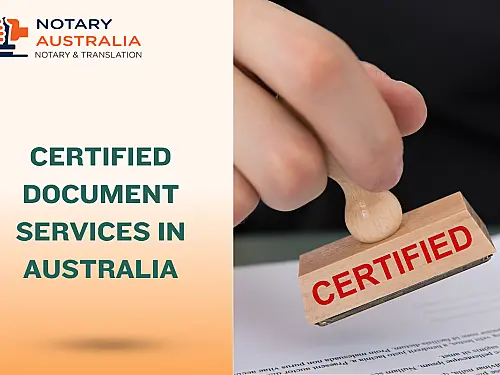
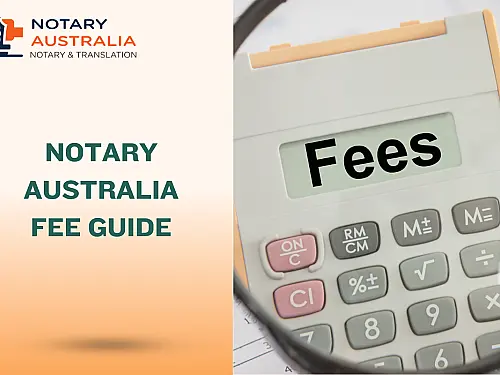
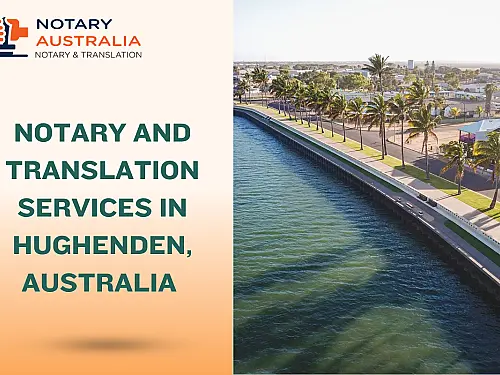
-thumb.webp)

